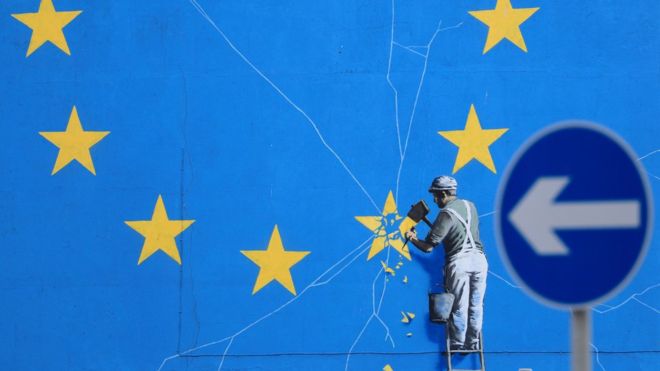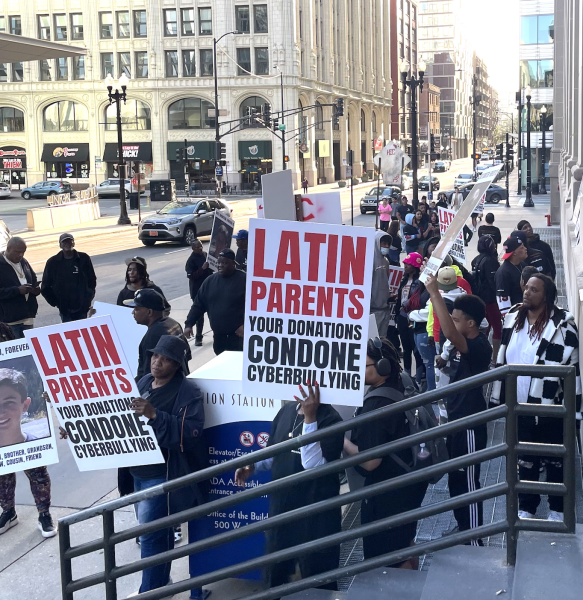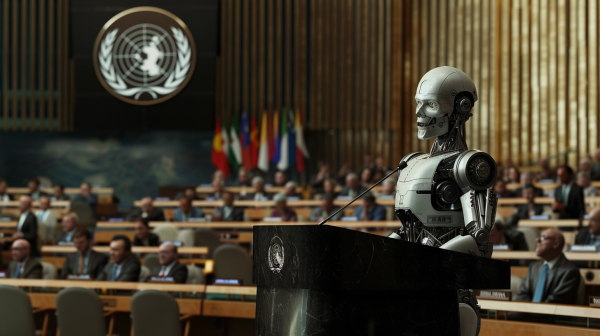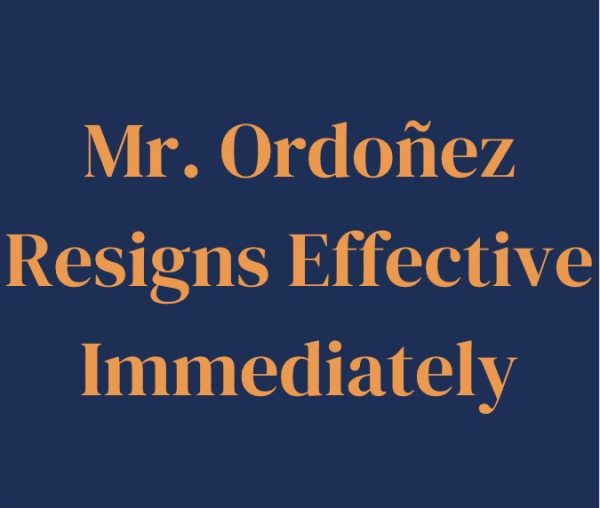Brexit: What Is It & Why Should We Care?
February 2, 2019
If one was to ask a random Latin student, or most American citizens for that matter, for their opinion on Brexit and the European Union, they’d probably respond by saying it’s a complicated political issue of little importance to their lives. That opinion, to some extent, is valid – Brexit is literally a negotiation happening on a tiny island 4,000 miles away – but it is, at very least, a fascinating case study of democracy, and, for students with dual citizenship anywhere in Europe, it carries an even greater significance.
On June 23, 2016, Prime Minister David Cameron, allegedly to help his own political career, held a referendum on whether the United Kingdom should leave or remain in the European Union. The ballot was delivered to every household in the UK. The next morning, to the surprise of many, it was revealed that the majority (51.9%) of British citizens voted to leave. Cameron, shocked, resigned the following day.
And so Brexit, named for a combination of the words ‘Britain’ and ‘exit,’ formally began. The last two-and-a-half years have essentially consisted of a chaotic mess of bills, general elections, votes of no confidence, discussions, and diplomatic negotiation, all resulting in very little progress. Readers may notice a similarity between this situation and another stubborn debate happening a little closer to home, regarding a certain 2,000-mile wall.
What exactly is the European Union, anyway? To put it simply, it’s an international partnership based on three principles: the freedom of goods (you can drive a truck full of apples from France to Spain without a problem), free movement of people (a Spanish person can easily move to France, get a job, and not worry about ICE knocking on their door), and the freedoms of capital and service (those are boring but economically important).
It gets more complicated, though. The United Kingdom includes Northern Ireland, a region which unsurprisingly lies to the north of Ireland. Until somewhat recently, Northern Ireland and the Irish Republic were locked in extreme conflict, mostly for religious reasons. ‘The Troubles,’ as the years of violence were named, claimed thousands of lives, many of whose were civilians’. However, almost miraculously, peace was negotiated between the nations in 1998, and the right to free movement of people was finally established.
Now, since Ireland continues to be a member of the European Union, Brexit severely threatens this diplomatic friendliness – to establish a customs border between the UK and Ireland, as Brexit would likely require, directly breaks the aforementioned British-Irish agreement.
Ultimately, there are three possible outcomes, each of which bear plenty of drawbacks.
Britain might negotiate a lenient, forgiving agreement with the E.U., one that still allows for “open” borders and free trade, otherwise known as a “soft Brexit.” But if Great Britain still has these benefits, although it might be beneficial to Latin students with dual citizenship, have they really left the European Union at all?
The opposite of a “soft Brexit” is, of course, a “hard Brexit,” sometimes called a “no-deal Brexit.” This would be a nightmare situation for many, and if the UK fails to reach an agreement by this March 29, it might become a reality. Britain’s ties with mainland Europe would be immediately broken, and they’d have to figure everything out on their own. The millions of Brits living in Europe, as well as the countless mainland Europeans living in Britain, would immediately be forced out of their homes. American dual citizens of European countries lose their right to work in the UK, and, likewise, British-American citizens can no longer easily live or work in mainland Europe. The drawbacks of that situation are pretty clear.
The only other feasible “solution,” apparently, is to hold a second referendum. According to recent polls, if another referendum were held tomorrow, British citizens would now vote to remain in the EU. That solution would basically put an end to this entire issue for the foreseeable future – no Brexit, no problem. But wouldn’t that go against the pillars of democracy? As Americans, we couldn’t have held a second presidential vote a month after Trump was elected simply because we might not have liked the outcome. It doesn’t work like that.
While this analogy might not be perfect, as British and American politics aren’t exactly the same, to hold a second referendum would certainly elicit an angry response from British democratic purists. So, it seems there’s no perfect solution to this big, complicated Brexit thing. It would be nice to go back in time three years and tell David Cameron not to hold the referendum, but, as the cliché goes, hindsight is 20/20.
So if Brexit is unsolvable, can you solve an unsolvable problem?
Joe Kennedy, class of 2020, pointed out, “That very question is unsolvable.”
Other students also offered input:
“You can’t,” said sophomore Bea Parr.
“You have to accept that it’s unsolvable,” decided freshman Ascher Cahn.
“No,” said sophomore Shahab Kousheshi simply.
In contrast to these bleak quotes, however, there were some students who took to a more positive point of view:
Freshman Phoebe Lembeck suggested that one should “solve a problem similar to it so that they have an estimate or a close answer.”
Maddie Koo, a junior, optimistically declared that “every problem has a solution.”
It’s unclear whether senior Adam Cole understood the question, although he nonetheless offered some profound words: “Thinking, breathing, and acting as a conscious being is en route to solving the unsolvable problem of life. To solve life is to cease to exist.”
It’s rather unlikely that British Prime Minister Theresa May will discover The Forum, and perhaps even less likely that she’ll happen to click on this very article. Regardless, the words of Phoebe and Maddie (and maybe Adam?) would be of great use to British Parliament at the moment. They truly are tasked with solving an unsolvable problem, or at least a problem that’s really, really hard to figure out – with millions of people and companies depending upon their decision.
For now, it’s hard to say what will happen. The most an American can do at the moment, at least without buying a plane ticket to London, is to continuously refresh the BBC website and wait.


















































lcampbel • Feb 3, 2019 at 6:23 pm
^I don’t know which is funnier: Adam’s comment or your interpretation of his inability to answer the question.
obaker • Feb 3, 2019 at 3:17 pm
I haven’t stopped thinking about Adam’s comment since this edition was published.
rigbokwe • Feb 2, 2019 at 10:32 pm
Wowzers wazoo! Honestly, Brexit felt like such a far away issue that I never had to worry about. But now I’m fascinated and I have so many questions. I love this article, Peter! 🙂 🙂